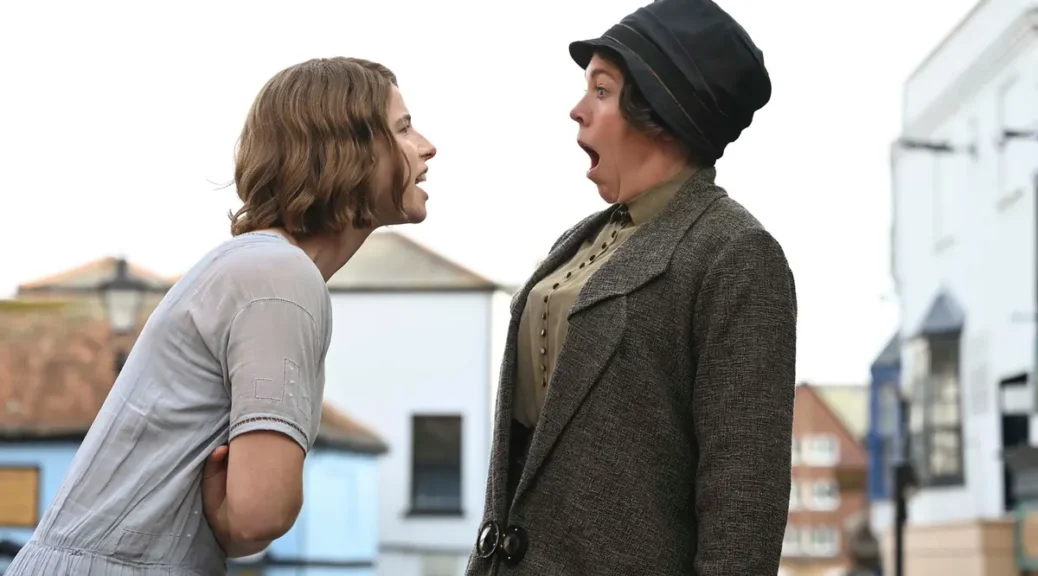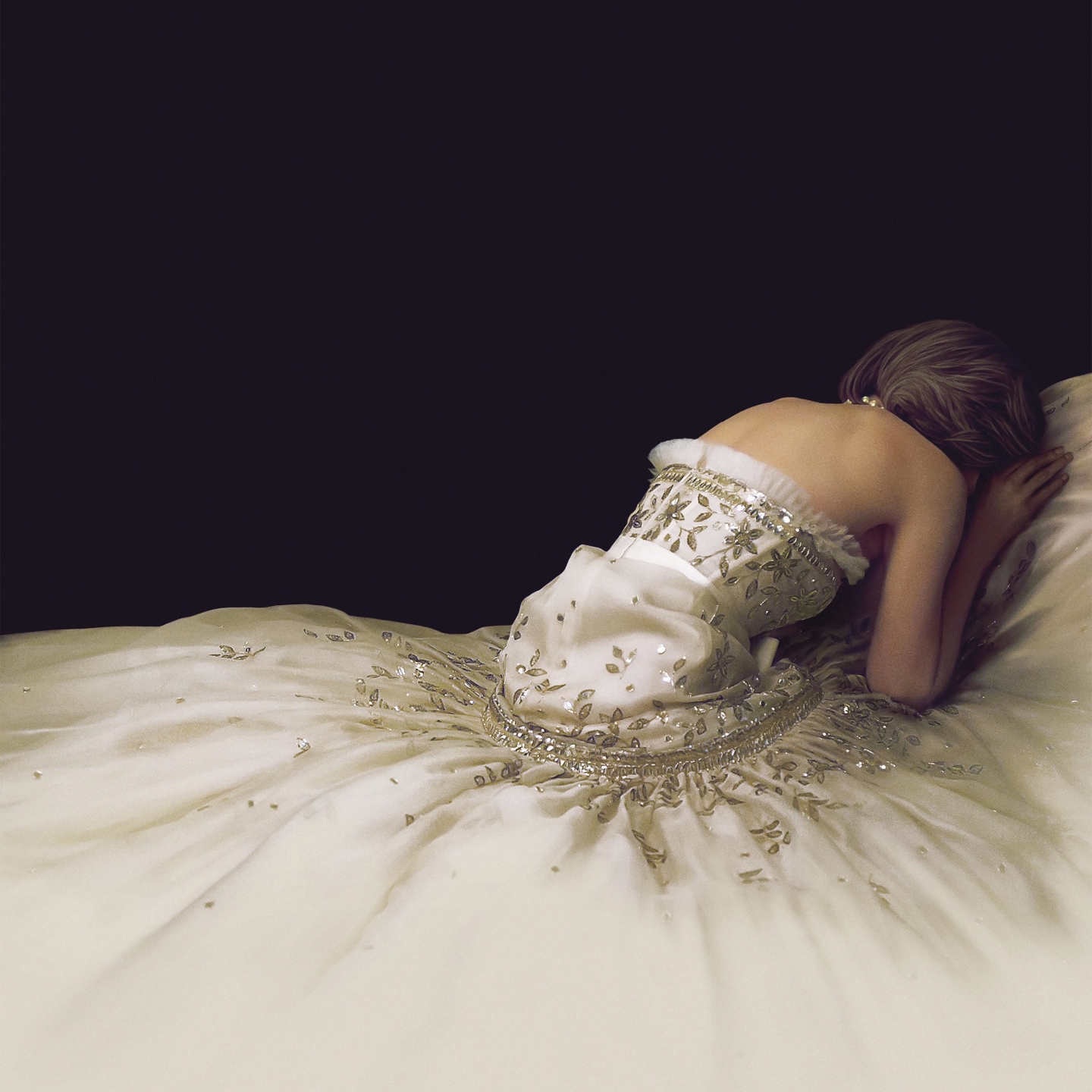Wicked Little Letters
by George Wolf
Long before you could hide behind a keyboard and avatar, a small English village was scandalized by some expert-level anonymous trolling. Wicked Little Letters tells us that story is “more true than you’d think,” and rolls out a stellar ensemble to elevate the tale at nearly every turn.
It is the 1920s in Littlehampton, England, where unmarried Edith Swan (Oscar winner Olivia Colman) still lives with her parents (Timothy Spall, Gemma Jones). Edith is known to be a dutiful daughter and devout Christian, so town tongues are wagging when she begins to receive hateful and profanity-laced “poison pen” letters in the mail.
Who could be behind such unwarranted vitriol?
Whaddya bet it’s that filthy Irishwoman Rose Gooding (Oscar nominee Jessie Buckley)?
Rose is frequently loud, drunk and vulgar. Plus, she’s a war widow (or is she?) with a young daughter (Alisha Weir from the upcoming Abigail), a “reputation” and a live-in boyfriend (Malachi Kirby).
Throw in the recent falling-out with Edith, and that’s enough for the town Constables (Hugh Skinner, Paul Chahidi), who arrest Rose and quickly schedule a show trial.
But “Woman Police Officer” Moss (Anjana Vasan) isn’t convinced, and she risks her position by continuing to investigate the letters on her own.
Director Thea Sharrock (Me Before You, The One and Only Ivan) and first-time screenwriter Jonny Sweet don’t craft a “whodunnit” as much as they do a “whoproveit” and a “whydunnit.” The real culprit is revealed fairly early on, and the film tries to balance some British wit atop heavier themes of repression, equality, and the sanctimonious crowd who are all preach no practice.
It’s historically interesting and well-meaning enough, but it reveals Sweet’s TV background through a light and obvious romp that’s rescued by heavyweight talent.
Colman, Buckley and Spall are all customarily splendid, each making up for the lack of nuance in their characters with some livid-in conviction and natural chemistry. Plus, Vasan stands out in the winning supporting group as the overlooked and underestimated W.P.O. Moss.
So while it’s lacking in the bite needed to leave a lasting impression, think of Wicked Little Letters as an extended cat video, one just amusing enough to take your mind off of all those nasty comments from the keyboard warriors.






